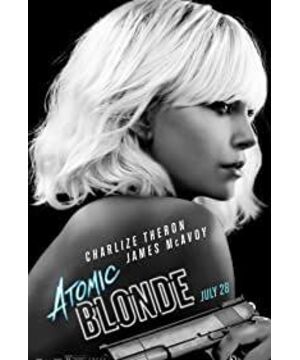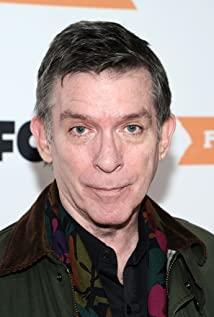"Arctic City" is an ideological struggle.
The Ideology of Blonde Atomic Wave
——"City of Extreme Cold" and Catching Shadows
text = empty language
"City of Extreme Cold", the name is like "Longest Day", "Darkest Dawn", indicating that the cold is followed by warmer, and the dark is brighter. A name like this, with snarky exaggeration, heralds a sharp, decisive ending. "Arctic City" uses its own plot to tell the story: the Cold War is coming to an end, and each side will have to struggle. This is both a struggle of power and a struggle of ideas. Looking at it this way, I just feel that those secret agents with the same gossip around them are fighting openly and secretly - which agent is responsible for which agent - it's really boring.
When watching the dirty-game struggle between spies, it should be clear that the Cold War was an ideological struggle in its essence: "capitalism" versus "communism." The quotation marks here mean that some ideologies often don't necessarily fit their name. In "City of Extreme Cold", several spies each represent an "ideology". The quotation marks here mean that they are labels that catch the wind. Which side wins is already contained in the comparison of ideological superiority - of course, this is also a statement based on the wind.
The former Soviet spy, obviously, stands for the "communist" ideology and should have a qualifier called "barbaric communism" ideology. After all, it was the capitalist camp that won the Cold War, and this is also the victory of capitalist civilization. In this film, former Soviet agents call each other capitalist bastards, while British agents call former Soviet agents "fascist pigs." "Barbaric communism" is seen as a form of fascism. Fascism is seen by the victorious side as barbarism abandoned by history. If the former Soviet Union had won the Cold War, perhaps capitalist spies would have been seen as fascist lackeys.
Even within the capitalist camp, there are ideological struggles. In this film, there are three agents of the "capitalist" ideology: British agents, French agents and American agents, corresponding to utilitarianism, romanticism and pragmatism.
The British spy in this film embodies the "utilitarian" ideology. That seems a bit off-topic. Or, to put it another way, it follows a "realism biased toward conservative interests." Its characteristic is that it believes that it has a crystal-clear grasp of the rules of reality, that it can play around with others, and then maximize its own benefits. The British spy in this film thinks that he is quite familiar with the rules of espionage. Sometimes he wants to maintain a balance between the two sides of the struggle, and sometimes he wants to kill people in a double-handed manner, so as to promote his own interests. This approach works many times until it encounters a stronger adversary: the ideology of pragmatism.
The French female spy in this film embodies the "romantic" ideology. "Romanticism" is roughly love fantasy, unrealistic. She became a spy because the job of a spy sounded exciting, and when she actually became a spy, she was very disappointed and fantasized about being a poet or a rock star. Of course she didn't become anything except being framed by British agents and assisting American agents. All in all, this is an ideology that is vain and fooled by realism, and naturally there is no victory to speak of.
The American blond and white-skinned female spy in this film embodies the ideology of "pragmatism". Or call it "realism biased towards liberal interests", which together with "realism biased towards conservative interests" resembles the A-B side of realism. For its part, nothing should be excluded in order to achieve certain realistic goals: barbaric communism, romanticism, utilitarianism, can all be part of planning in the name of liberty. Just like the American female spy in this film, in order to accomplish the goal, the British spy, the former Soviet spy, and the French spy can all be used by her. It's okay to curse at your co-workers or boss as long as you can achieve your goals. It is because of the blessing of this ideology that the heroine = an American female spy becomes the only spy in the film with such a cool image and action. A plan without a plan can be so precise. Bullets hit 100 hits. In fact, it is the blessing of this ideology that prevents the heroine from dodging bullets deliberately, and the bullets will avoid the heroine, and some people may even forget to shoot.
View more about Atomic Blonde reviews











